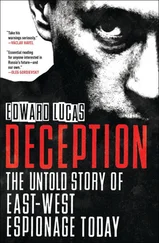The next question is how they could have approached him. Clearly an overt approach would be risky and probably futile. Snowden showed no sympathy for Russia. It is therefore likely that they would have used what in spy parlance is called a ‘false flag’ operation. Russian intelligence, like the Soviet KGB before it, has a particular expertise in this. During the Cold War, they would identify disgruntled Western officials with strongly anti-communist views. These people would have access to secrets and grievances—perhaps because they were overlooked for promotion, or perhaps because they felt their governments were not vigorous enough in resisting the Soviet empire. The KGB officer would then make a delicate approach, showing no sign of any East European connection, but pretending instead to be from South Africa’s intelligence service, the Bureau of State Security. The hapless Westerner would think he was talking to a like-minded friend. Gradually he would be coaxed into handing over small secrets, and eventually big ones. Once he was past the point of no return, the case officer might identify himself as KGB. Or he might maintain the ruse. Often it was only when (or if) the breach was discovered that the Western official would realise that far from helping a friend, he had betrayed his favourite cause to the worst enemy imaginable. A similar kind of false flag operation involved approaching Jewish or pro-Israeli officials in the guise of a Mossad officer. The target would be reproached for his country’s half-hearted support for the Jewish state and believe that he was helping its security by handing over vital information.
The beauty of false flag operations is that they can be precisely tailored to fit a target’s initial vulnerability, and can then deepen and extend it. They can go through multiple stages: one intelligence officer identifies the first set of weaknesses, drawing up a detailed personality profile and a thorough picture of the target’s private life and interests. Then another begins to exploit them. A third deepens the cooperation and a fourth turns the screws hard. Only when it is far too late, if at all, does the victim realise what is going on.
If the Russians indeed spotted Snowden as a potential target for recruitment, the best false flag approach would have been in the guise of campaigners for privacy and government openness. They would have been patient; carefully massaging his ego and making him feel that he was a lone crusader for justice, whose vindication would lie outside the system, not inside it. There is no proof of this. But it would certainly help explain what happened later.
Snowden left the CIA in 2009 and moved to Dell, the computer hardware company, working as a contractor at an NSA base in Japan. Two oddities stand out. One is that he abruptly ceased posting material on Ars Technica, and contributing to its chatrooms. His last substantive contribution read as follows:
It really concerns me how little this sort of corporate behaviour bothers those outside of technology circles. Society really seems to have developed an unquestioning obedience towards spooky types.
I wonder, how well would envelopes that became transparent under magical federal candlelight have sold in 1750? 1800? 1850? 1900? 1950? Did we get to where we are today via a slippery slope that was entirely within our control to stop, or was it an relatively instantaneous sea change that sneaked in undetected because of pervasive government secrecy? [76] http://arstechnica.com/civis/viewtopic.php?p=503777#p503777 . He made two more contributions, one about a computer game in November 2011 and the other a rather cryptic one about a ‘Dead Man’s Switch’ in May 2012: http://arstechnica.com/civis/viewtopic.php?p=22878085#p22878085
His views were getting more radical, not less. So why did he desist from sharing them? One explanation would be that he was worried about attracting the attention of his bosses or colleagues; another is that someone warned him that this could be a danger. Such a break in a pattern of activity can be a revealing clue in the counter-intelligence world. During the Cold War, Britain’s spy-catchers achieved some notable success following a tip-off about readership of the Daily Worker . This was the Communist Party newspaper (later renamed the Morning Star ). People sympathetic to Communism in the 1930s tended to be readers of the Daily Worker. But if approached by Soviet intelligence officers, they would be told to stop subscribing: it would be more useful to abandon overt Communist sympathies and instead get jobs within the British establishment.
Many years later, this led to some useful breakthroughs. Diligent study of newsagents’ old records revealed people who had subscribed to the Communist paper for some time and then stopped. Some of them indeed turned out to have been active Soviet spies.
Along with Snowden’s puzzling silence is another oddity: why did he give up the CIA so quickly? Although he had long wanted to live in Japan, a glamorous job involving intelligence operations in Geneva might seem more fun than checking computers on a military base. One explanation for this could be that Snowden was worried about the CIA’s security screening. This involves repeated polygraph (lie-detector) tests and can be quite intrusive. It might reveal that he was hanging out with WikiLeaks sympathisers, for example—which would mean a speedy end to his career. Repeat screening for contractors to American intelligence (who make up an astonishing third of the 1.4m people with top-secret security clearances) is bureaucratic and onerous, but not so revealing. Another further explanation could be that he realised that being a small cog in the CIA’s station in Geneva did not give him access to the secrets that would prove his contention of widespread and sinister government misbehaviour.
The next oddity is that he left his job in Japan in September 2010 and visited India for a week, ostensibly to attend a four-day course on ethical hacking. [77] http://articles.timesofindia.indiatimes.com/2013-12-04/india/44756015_1_edward-snowden-information-security-koenig-solutions
India is far friendlier territory for Russian spies wanting to talk to a source than somewhere like Japan or Switzerland. There is no proof that this happened. But the trip does not quite make sense. Anyone with a security clearance would normally have to seek permission to attend such a course; it would be unlikely to be granted. It may be that procedures for dealing with contractors at the base in Japan were sloppy: in 2011 a background check on Snowden was improperly carried out. [78] http://news.yahoo.com/watchdog-faults-background-check-nsa-leaker-235639806.html
At any rate, he did not declare this trip to his employers before or afterwards. If he was indeed learning hacking skills, it would be interesting to know why: the course was not needed for his job. If he went to India to meet someone, that would be interesting too. Either way, the trip looks fishy.
Snowden moved to Hawaii, and in March 2013 took a job at an NSA contractor, Booz Allen Hamilton. His new employer was worried by his resumé. It seemed to have been padded with educational accomplishments which would have been better described as aspirations. [79] http://www.reuters.com/article/2013/06/21/us-usa-security-snowden-idUSBRE95K01J20130621
He was a systems administrator, one of the unsung people who keep machines and software working properly. The job has its drawbacks—but its boringness makes mischief possible. Supervising people who are doing boring jobs is itself boring, and is often done badly. But before gaining this job, Snowden was already stealing secrets (at least as early as April 2012, American officials believe [80] http://in.reuters.com/article/2013/08/15/usa-security-snowden-dell-idINDEE97E0CE20130815
). He says he sought the Booz Allen job because it ‘granted me access to lists of machines all over the world the NSA hacked’. [81] http://www.scmp.com/news/hong-kong/article/1268209/snowden-sought-booz-allen-job-gather-evidence-nsa-surveillance
He seems to have persuaded between 20 and 25 of his NSA colleagues to give him their passwords and log-ins. If true—he has denied it—this is striking. It is the behaviour of a spy, not a whistleblower. Why would someone who wanted the best for his country, and reform of his agency, entrap colleagues into a career-ruining blunder? (The people concerned have now, it seems, been dismissed.)
Читать дальше












